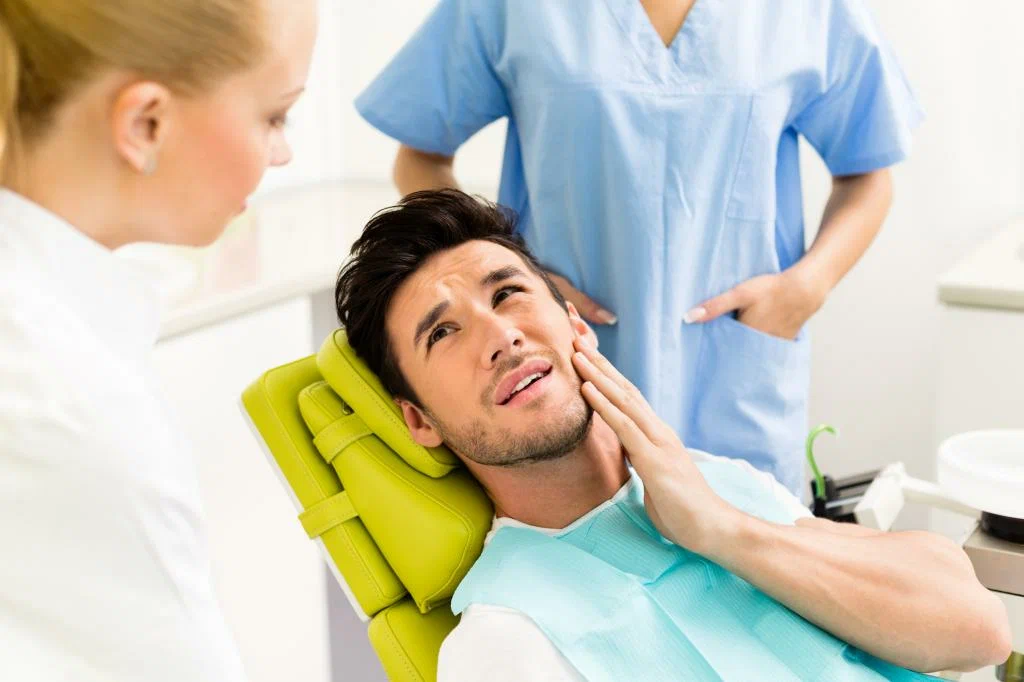TMJ (Temporomandibular Joint)

Alina Dental Clinic
TMJ (Temporomandibular Joint)
The temporomandibular joint (TMJ) is the hinge that connects your jaw to your skull. Problems with this joint can lead to pain, discomfort, and difficulty with jaw movement. TMJ disorders (TMD) can affect your ability to chew, speak, and even cause headaches or neck pain. At Alina Dental Clinic, we offer comprehensive treatment options to address TMJ disorders and help you find relief from the pain and discomfort associated with this condition.
Relieve TMJ Pain with Effective Treatment
TMJ disorders can be caused by injury, stress, teeth grinding, or misalignment of the teeth and jaw. Whether you’re experiencing jaw pain or clicking, our team is here to provide the relief you need.
Reasons
Why Choose TMJ Treatment?
TMJ treatment is important for alleviating pain, preventing further damage, and improving the function of your jaw. By addressing the root cause of your TMJ disorder, we can help restore your ability to speak, eat, and live pain-free. Our treatment options are designed to relieve pain, reduce inflammation, and restore jaw alignment, so you can enjoy a better quality of life.
Get Relief form Pain
Restores Functionality
Reduces Inflammation
Prevents Further Damage
Schedule Your Dental Visit Today!
Book your appointment effortlessly and secure your path to a healthier, brighter smile
Types of TMJ Treatments
At Alina Dental Clinic, we offer personalized TMJ treatments:
- Oral Appliances: Custom splints and nightguards to reduce grinding and relieve pressure.
- Physical Therapy: Exercises to strengthen muscles and improve jaw mobility.
- Medications: Anti-inflammatory drugs, muscle relaxants, and pain relievers for relief.
- Cognitive Behavioral Therapy (CBT): Helps manage stress contributing to TMJ issues.
- Surgical Options: In severe cases, procedures like arthrocentesis or TMJ replacement.


Benefits of TMJ Treatment
- Pain Relief: Alleviate the discomfort caused by TMJ disorders, including jaw pain, headaches, and neck tension.
- Improves Jaw Function: Restore your ability to open and close your mouth with ease.
- Prevents Further Damage: Prevents the progression of TMJ disorders, reducing the risk of permanent joint damage.
- Enhances Quality of Life: TMJ treatment can improve your daily function, allowing you to eat, speak, and live without pain.
- Reduces Inflammation: Decreases swelling and inflammation in the jaw joint, providing long-term relief.
- Promotes Relaxation: Eases muscle tension and stress, helping to prevent further teeth grinding and jaw clenching.
Help & FAQ
General Question
Lorem ipsum dolor sit amet, consectetur adipiscing elit, sed do eiusmod tempor incididunt ut labore et dolore magna aliqua. Ut enim ad minim veniam quis nostrud
Lorem ipsum dolor sit amet, consectetur adipiscing elit, sed do eiusmod tempor incididunt ut labore et dolore magna aliqua. Ut enim ad minim veniam quis nostrud
Lorem ipsum dolor sit amet, consectetur adipiscing elit, sed do eiusmod tempor incididunt ut labore et dolore magna aliqua. Ut enim ad minim veniam quis nostrud
Lorem ipsum dolor sit amet, consectetur adipiscing elit, sed do eiusmod tempor incididunt ut labore et dolore magna aliqua. Ut enim ad minim veniam quis nostrud


Quick Help & Info
Find answers to your most common dental questions and concerns. Get quick and helpful solutions to address your oral health needs and improve your smile.
While TMJ disorders may not always be completely curable, treatments can manage symptoms, relieve pain, improve jaw function, and prevent further damage.
The length of treatment varies based on the severity of the disorder. Some patients experience relief within a few weeks, while others may need more long-term management.
Most TMJ treatments are non-invasive and designed to reduce discomfort. Any pain associated with treatment is usually minimal and temporary.
Untreated TMJ can lead to chronic pain, worsening jaw dysfunction, and even permanent damage to the jaw joint. Early intervention can prevent these issues.
